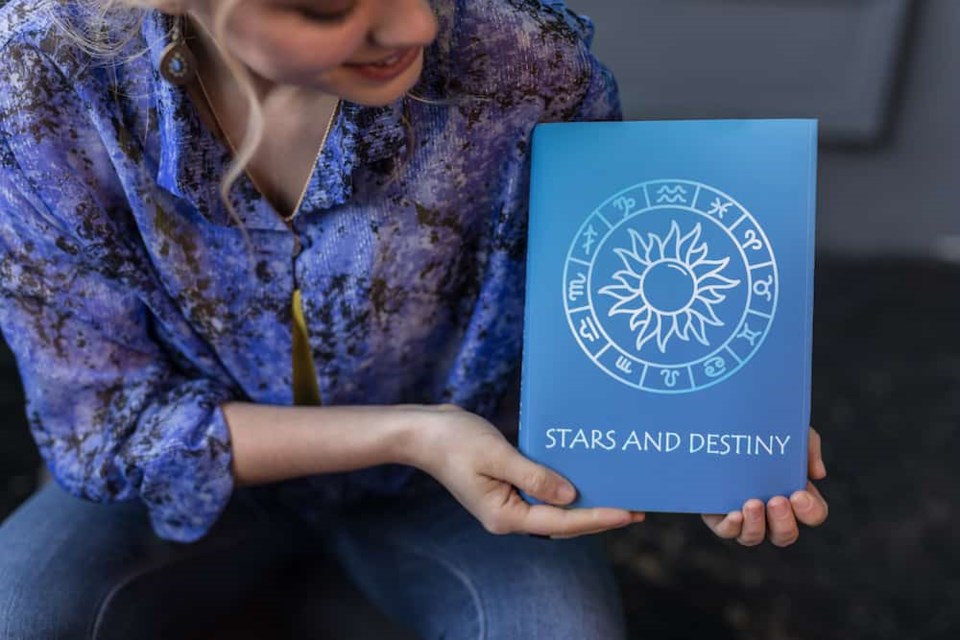Astrology has been a fixture of newspapers since the days when reporters and editors could smoke inside their newsrooms.
In some countries, radio and television newscasts featured hosts who would provide a daily horoscope to listeners and viewers. Some of them eventually became beloved celebrities.
In this century, as many things have changed in the print media landscape, astrology has endured. Setting aside any discussions about whether horoscopes belong in pages and programs devoted to the delivery of news stories, there are Canadians who believe there is a way to study the movements and relative positions of celestial objects to make observations about human affairs and terrestrial events. Research Co. recently sought to find out how many and who they are.
But while astrology may be erroneously regarded as a fixture of the past, the level of interest in this concept is decidedly higher among the country’s youngest adults. Only 27% of Canadians aged 55 and over profess a belief in astrology, along with 37% of those aged 35 to 54.Among Canadians aged 18 to 34, the proportion of believers in astrology jumps to 49%. This makes millennials the only demographic in the country that is more likely to look at astrology as real than illusory.
There are some marked regional differences as well. Ontario has the highest proportion of believers in the concept of astrology (42%), followed by Atlantic Canada (37%) and Quebec (36%). Western Canadians are not as enthusiastic, with British Columbia at 31%,
Manitoba and Saskatchewan at 28% and Alberta at 27%.
When compared with three other concepts related to what is usually described as “paranormal” activity, astrology fares marginally better. A third of Canadians (33%) believe in haunted houses, or buildings being inhabited by spirits of dead people
Just over three in 10 Canadians (31%) think mediumship, or mediating communication between living human beings and spirits of dead people, is real. The same proportion (31%) believe in clairvoyance, or gaining information about an object, person, location, or physical event through extrasensory perception.
When asked about their own behaviour, one in five Canadians (20%) say they pay attention to astrology. As expected, the proportion is highest among those aged 18 to 34 (30%) and drops among those aged 35 to 54 (20%) and those aged 55 and over (14%).
Once again, avid followers of the horoscope are more likely to reside in the country’s eastern provinces (Ontario and Atlantic Canada each at 25%, Quebec at 20%) than the western ones (British Columbia at 18%, Alberta at 11%, Manitoba and Saskatchewan at 8%).
On a political note, half of Liberal Party voters in 2019 (50%) claim to have never paid attention to astrology, along with 52% of those who supported the New Democratic Party (NDP) and 56% of those who cast ballots for the Conservative Party candidate in their riding (56%). Liberals, however, are slightly more likely to be current horoscope readers (24%) than NDP supporters or Conservatives (19% and 18% respectively).
For decades, astrology has had its share of controversies. Beloved astronomer Carl Sagan was one of its fiercest critics, pointing out that the information provided by horoscopes was “consciously designed to be so vague” as to “apply to anybody.” Most Canadians may be interested in glancing at a horoscope at a coffee shop, but unwilling to put key decisions in their lives through an astrology litmus test.
In any case, astrology seems to be in a fascinating position from a sociological perspective. The youngest generation of Canadians is the one that is more likely to regard it as believable, as most members of generation X and baby boomers would seem to perceive horoscopes as a fad whose relevance has expired. For all those screaming headlines about what millennials are killing (napkins, cereal and fabric softener, for example), astrology might be one that they are currently keeping alive.
Mario Canseco is president of Research Co.
Results are based on an online study conducted from December 2–6, 2019, among 1,000 adults in Canada. The data has been statistically weighted according to Canadian census figures for age, gender and region in Canada. The margin of error, which measures sample variability, is plus or minus 3.1 percentage points, 19 times out of 20.


